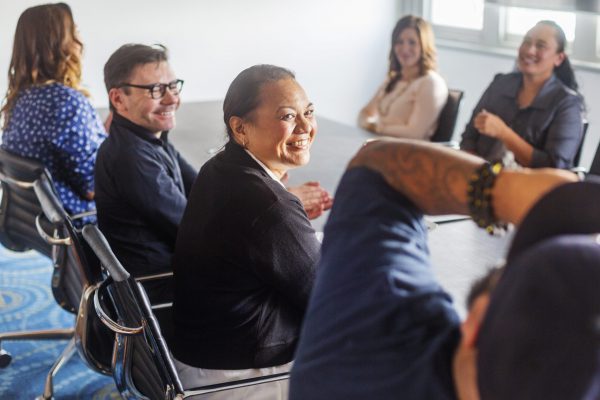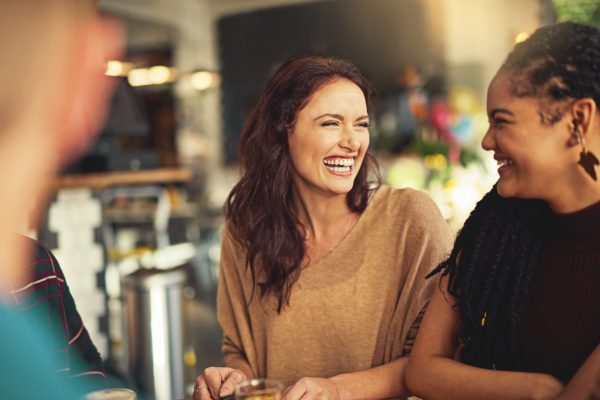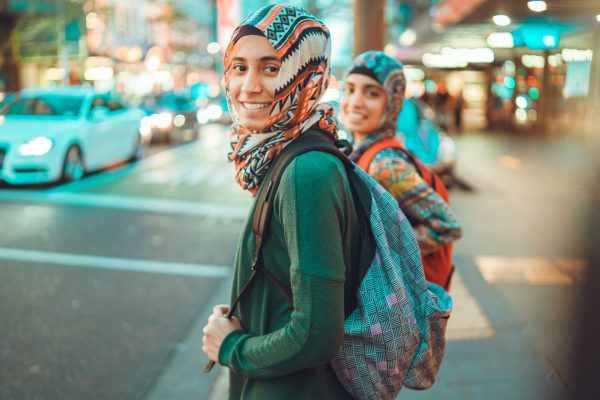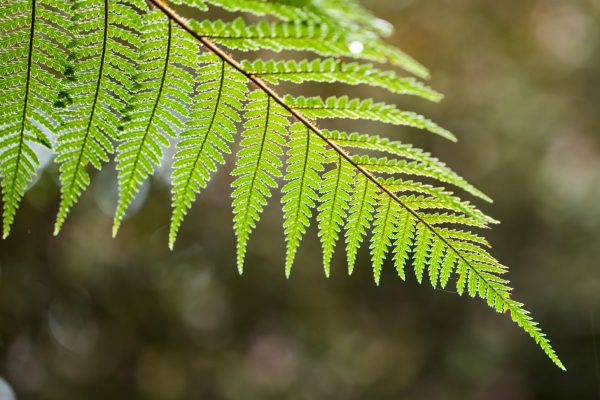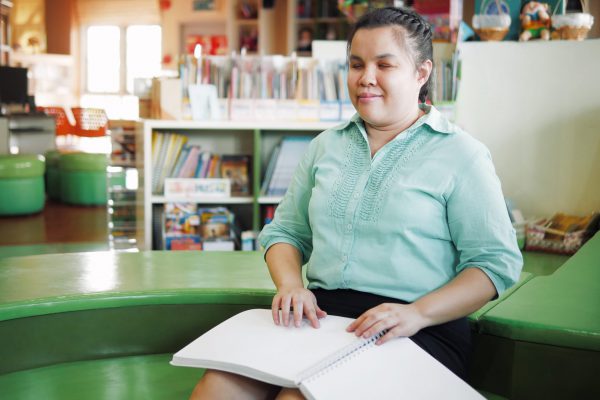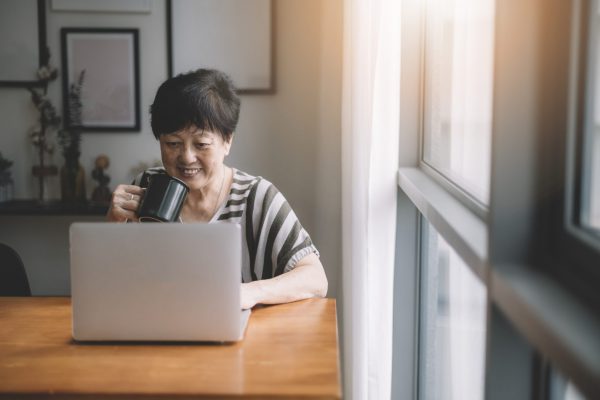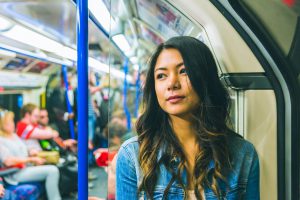Support me
-
Giving and receiving support in your community
When you give or receive support in your community, it can help grow your sense of belonging. Participants spoke about how they felt like they belonged when others in their community put effort into wrapping care around them. They also shared how these acts also grew the givers’ own sense of belonging and connectedness through the broader community.
Such a friendly town, find out who is living on their own and needs some support. Someone they need a visit. Know a gentleman that sits by himself all day, I go to see him. And there are lots of people like that in town, because we are a friendly lot it gives an opportunity to meet up.
-
Such a friendly town, find out who is living on their own and needs some support. Someone they need a visit. Know a gentleman that sits by himself all day, I go to see him. And there are lots of people like that in town, because we are a friendly lot it gives an opportunity to meet up.
-
I rang hospital because wasn't very well, reception recognised my voice even then not at hospital very often. She was so lovely – “you get into the car and bring you around straight away”. In town, I could have been dead in town. I am grateful for Westport - to be alive.
-
The isolation factor is particularly important for our people who have mental health challenges. My door is always open. In a place like this, you never know who is going to turn up and what they might need. You might just have to give a listening ear, a cup of tea, kai. Sometimes we can’t be the ones to provide physical assistance, but can refer [to other agencies].
-
For newcomers, [xx] or others take them personally to activities to introduce them to those activities, to give them that first nudge. Offering them support is important to give them sense of belonging. [xx] and team help them out by picking up their kids from school, taking them to swimming, etc.
-
One woman last week, turning 90. She didn’t know anyone and where to have her cake. So I went around organised something. That’s just what the town’s about. How many people are on their own?
-
-
Accepting help
When you accept help from others, it creates connection and builds relationships. Participants spoke about how accepting help created opportunities and independence - and how helping others in return can help build community. They also talked about how being helped by someone can shift people’s perspectives about others who are different from them.
People are prepared to speak to you and give you a cuddle and if you think you need it, you get so much help.
-
People are prepared to speak to you and give you a cuddle and if you think you need it, you get so much help.
-
Some of my friends, they were my friends previously, but I didn’t open up to them. We just talking about my kids. When I decide to talk to them and open up to them, we can share real things. Then I bond with them. Even though I don’t have family here, I got the people support.
-
Almost like, you can ring up anyone in the community and there is a very high likelihood that a person is willing to help where necessary. Same thing at the office, if I need help with work or things I need, I would never hesitate to get up and ask someone within the office. It's support. One of the big things is that there is no real cynicism or no one would look down on you for asking for help.
-
NZ gives you the opportunity to go and create it, make it happen yourself. There is always someone ready to fund it, ready to help you.
-
People is [sic] been nice, they supporting us as well. They offer us help. I injure my shoulder, they say “you need help let us know”.
-
-
Feeling safe
Feeling safe and knowing that others help keep us safe supports belonging. Participants shared the importance of having structures and processes to manage and protect them from unsafe behaviour or actions, like attacks similar to the March 15 attack. They also discussed how feeling safe takes many forms, from not feeling at risk of physical violence, safety around identity and diversity, and safety in conversations.
Standing with me in order to have the feeling of safety (psychologically and physically).
-
Standing with me in order to have the feeling of safety (psychologically and physically).
-
Being a non-binary person, I only feel safe and able to have a voice and a disability, when I’m surrounded by like minded, the people that understand that. Even adults can be vulnerable if the society we live in is not educated enough and welcoming enough.
-
So they were living in family violence, and working with women who are not in a violent relationship any more but affected by the past. Then women who are in violent relationships. Refuge providing non-judgemental support, empowering women to be the leaders of their own safety. Created a huge sense of belonging that no one was going to judge them if they were still in the relationship, or went back to it. A lot of the women felt like they didn’t belong in their own family groups or social groups because they had stayed [in the relationship]. So trying to create the environment so that the environment belongs to them.
-
We are getting bigger. When we have a public event, we have to get it authorised by the government. It didn't use to be (authorised in terms of security).This community started over a year ago, so I don't know before [Christchurch] if there was a need to get permission. We feel more secure.
-
-
Coming together in a crisis
The experience of coming together with others in response to a crisis can help develop connection and relationships. Participants spoke of major events and the sense of belonging that grew among people coming together to support each others’ needs. Participants shared three significant events: the Christchurch earthquakes, the attacks of March 15, and Aotearoa New Zealand's response to Covid-19.
There might be a solidarity that doesn’t happen in good times, because there’s now a shared experience. The expression is we’re all in this together.
-
There might be a solidarity that doesn’t happen in good times, because there’s now a shared experience. The expression is we’re all in this together.
-
We hear through media and that is really highlighted. E.g. Student Army, which has grown from Christchurch to a national thing.
-
Something we studied at occupational therapy, what is belonging. Actually, right now is a real big sense of belonging. That cohesiveness of New Zealanders, that attitude we have at the moment which is really positive in a hard uncertain time. we have to work together and support each other and get through it.
-
When we were in lockdown few people knew that I was alone. Some people would call me and they would ask how I was doing and how things were going and that made me feel good.
-
My community in Aotearoa is where I can give something back. We are citizens of the world. It’s gone, that I’m Portugese or whatever; I become a New Zealander. In this pandemic we’re talking about it as one. Boundaries and caste and religion [had] caused us to treat ourselves as different.
-
-
The impact of March 15
March 15 had a profound impact on Aotearoa New Zealand. The sharing of grief and solidarity, expressed through public gatherings and individual reflection, led to increased engagement, awareness and acceptance of Aotearoa’s Muslim community. Māori played a critical support role, and these connections with the Muslim community have sustained. Other non-Muslim minority groups shared feeling more valued, welcome and at home after March 15.
After March 15, I have a feeling that everyone is on the same side.
-
After March 15, I have a feeling that everyone is on the same side.
-
When, during the response to the 15/03/19 attacks, or Covid Level 4, there are clear signs of solidarity.
-
Being a Muslim girl in a small city is hard, but they ask you after 15 March - people got more open.
-
A conference was in parliament. An International conference, first time it was held in Australasia, was in Parliament in Wellington. NZ Government welcomed participants from all over the world.
-
[The conference was] just after March 15. We didn’t know the context of the mosque shooting and how big it was. We thought the conference would be a target.
-
We also had many Muslim delegates. The fact that the government was particularly welcoming and put lots of protective measures in place, that said, “we value you”.
-
March 15 was a turning point. At Unitec in general, that scarves for students, they want to understand more. I can feel the aroha and support, not just in general but the top management. We organised a reflection on both campuses, commemoration. And this year we organised a similar event. I received lots of support.
-
Last year after 15/3, the next day, my partner and I didn't know what to do. I heard they had a gathering at Aotea Square, so we went.
-
Being in a place where everyone felt the same, and had come to do what we were doing, was really awesome. My partner who doesn't think as deeply about these things as I do, was just as emotionally involved and affected. That being welcome and knowing you are in place where you see your reflection or the reflection of what you love.
-
We get to be more connected with other communities like Māori. We feel we are now to become one, rather than divided. We have many times been invited by them [to marae]. After Christchurch, we became more united - Māori is very looking after us.
-
Also, when something happens in the larger community eg the shootings in March; there were a lot of people who reached out to me as well even though I wasn’t Muslim. Because they knew I was different, wanted to make sure I was ok.
-
-
Receiving support from organisations
Receiving appropriate support from organisations like health providers, government agencies, and community organisations can increase your sense of belonging. Participants spoke about how kindness and accessible processes supported them. They shared the value of organisations going ‘beyond the usual process’ to provide the right support for a persons’ vulnerabilities and emotional needs.
When getting support from the government (free mental health care helped my partner a lot before).
-
When getting support from the government (free mental health care helped my partner a lot before).
-
People feel a sense of belonging, when they feel comfortable. Going into places or situations where you don’t feel comfortable, a lot of clients go into places and they feel vulnerable. I feel like they feel like that when they first come here. We feel pride in spending the time to get to know them, to get them to feel comfortable. Not just about filling a form. Feel like they belong in a refuge family, so they can get the most out of it. Making them feel comfortable.
-
Healthcare in NZ makes me feel like a participating member of society because in the Philippines, it is very expensive to afford healthcare especially for someone with an autoimmune disease.
-
In terms of high school, we have cultural diversity day and there are homework tutor programmes three times a week for all the refugee children that help with any subject one-on-one.
-
First person I met was the housing coordinator. She sorted out everything. She emailed me in Mumbai. So, okay, I’m feeling safe. I'm an only child, just mom and me. My dad died when I was very young. [xx] [works at xx], she gives [me] some confidence, and [xx], they are talking like they know me 5, 6 years. People were so good, even at airport, lady helped me from where to collect baggage and get out to security check, she guided me through declaration, I didn’t know her.
-
Having my chronic, disabling disease recognised and funded.
-
-
Access to funding
Having access to funding opportunities can help those with additional needs and remove barriers to belonging. Accessing funding supports individuals and communities to feel valued and that their contributions matter. Participants shared how funding removed barriers to support, like a teacher aid. They also spoke about how receiving funding enabled new community projects and initiatives.
I got funded for teacher aide support, which made my school experience dramatically better. So, now I get ten hours a week and the teacher aide is with me for 3 of my classes, like my biology class because I wasn’t safe around scalpels for dissections and things like that. That went a long way to making me feel like I belong.
-
I got funded for teacher aide support, which made my school experience dramatically better. So, now I get ten hours a week and the teacher aide is with me for 3 of my classes, like my biology class because I wasn’t safe around scalpels for dissections and things like that. That went a long way to making me feel like I belong.
-
When we apply for grants for projects from Rata Foundation, Lottery, etc we get them sometimes, like for our radio programme, language classes and to cover expenses for our cultural festival.
-
